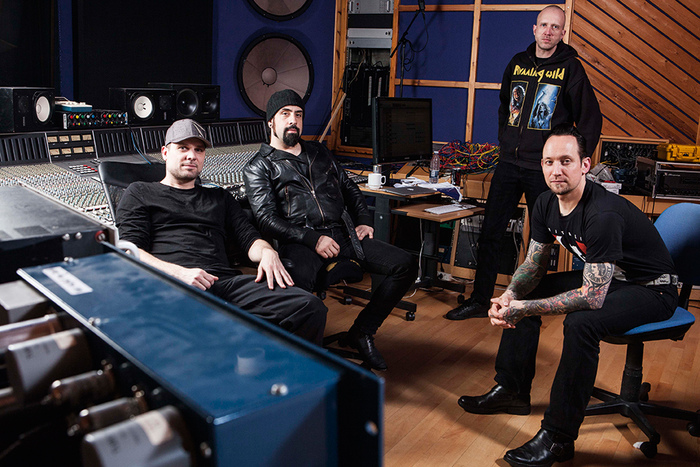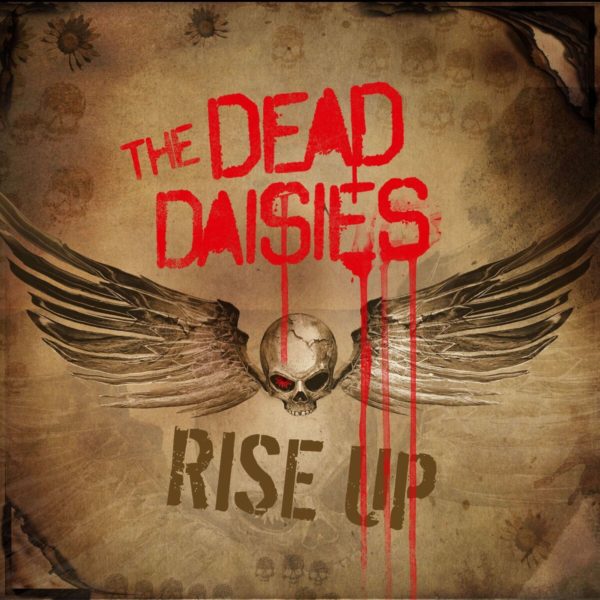
by Chris A.
– Senior Photojournalist —
Ricky Phillips has been a rockstar almost his entire adult life. He was in “The Babys”, he worked with Ted Nugent, he was a member of Bad English and now he’s a member of 80s rock icons “Styx.” Ricky Phillips is a bass guitarist who is living his American rock n’ roll dream. He was relaxed and it was a pleasure to shoot the breeze with this veteran musician. He was a guy who appreciates where he is at and the journey he’s been on. He shared some of his adventures and stories of some of the amazing people he’s crossed path and made music with. Trust me. I think one days this guy’s going to be able to write a great book. Make sure you catch Styx on tour this summer and you can learn more about the band by visiting www.styxworld.com and on assorted social media.
 Chris A: Styx has been around since 1972 and continues to draw great crowds. What do you chalk up Styx continued success to?
Chris A: Styx has been around since 1972 and continues to draw great crowds. What do you chalk up Styx continued success to?
Ricky: Probably diversity. Styx started off as a real kinda gritty rock band then shot into some prog and stayed there for quite awhile. As they went through their changes, even if it was a poppy kind of song with a lot of Top 40 airplay, there was never another band that sounded like them. What happens in music is that to get airplay bands homogenize and start sounding like everyone else. To get on the radio back in the 80s you really did have to sound a certain way, I experienced that when I was in Bad English. You want to get on MTV and on the radio and have a successful record but it got to the point where you had to follow a formula. Styx seemed to always have their own sound. I remember when I was in The Babys, John Waite and I would go down front during our tours with Styx and watch them. There was three lead singers which was unusual. It’s hard to explain Styx. There were different voices between the singers and then the guitar sounds created between James Young and Tommy Shaw when he joined the band in ’75. There was a sensibility in the band between the main song writers and a lot of bands don’t have that. That sensibility has done well for me for 12 years. When I discovered I was going to be in the band I studied every lick that Chuck Panozzo played. James Young led the band to where it is today, and makes sure we stay true to the original songs. If there is a note that is expected that people want to hear, we play that note. There are plenty of places in the catalog to stretch are legs and show off our musical skills but we do it in the appropriate place and don’t impact the song. We are very careful to stick to the original recordings but we have room to move. I really never play the exact same licks from night to night except on those “must play” notes.
Chris A: What made you decide to pick up the bass guitar?
Ricky: I played piano and just really didn’t feel like it was the instrument for me. I went through seven piano teachers before I said “No, I don’t want to do this anymore.” Instead I started sneaking my dad’s guitar out of his room and started to try to learn songs by The Beatles and the Stones. When I heard Cream and Jimi Hendrix, that was the best day in my musical life. When I was 14 a bass player left his guitar in my house and I couldn’t put it down. I tried to play John Entwistle lines and I got hooked. Now, I still played guitar and played a lot of guitar on my first Babys album, “Union Jacks”. However, Bass is th thing that captured me. It’s been a challenge for me and you can’t perfect a musical instrument but I continue to chase it.
Chris A: You have a great rock n’ roll pedigree and you’ve been in a lot of bands. Please tell me a little bit about your personal rock n’ roll history.
Ricky: What happens is when you’re in a band and you’re not the lead singer or guitar player, is that when the band breaks up the bass player is always trying to find a gig. I was always just looking for gigs. People would call me for session acts but I wasn’t really a session guy because I didn’t really want to play what other people wanted me to play. I turned down a lot of things that perhaps I should have done when I was young because at the time I didn’t mind sleeping in a small apartment as long as I was musically satisfied. As you get older you question some of those decisions because music is not an easy business to make a living in and stay in. You can be at the top of the mountain and two years later end up working at Kinkos. I’ve been very lucky in this business and I’ve stayed busy. I got calls to work with amazing people like Mick Jagger. I got calls asking if I could work with David Coverdale and Jimmy Page. I remember getting a call asking me if I could break away to play guitar on a TV show with Rodger Daltry. I mean, these are the kind of people some kid from a town in Southern California was never meant to play on stage with. But here I was doing it. These are “pinch me” moments. I remember being on tour with Bad English in Japan opening for Jeff Beck and the next thing I know Beck asks us to play in his Encore. So John Waite, Neil Schon and I go out and play “Going Down” with Jeff Beck. You know man, it’s Jeff Beck, the guy who is the best there ever was. I’ve been very lucky, working with Jimmy Page was great too. I wasn’t supposed to be on that record but the next thing I know I’m flying to Vancouver to start recording. It was a great experience. I had no idea of the many talents David Coverdale has as a writer, guitar player and artist. You know… sometimes I’ll be driving down the road with the radio on and a song will come on and I’ll think “Man, that’s a cool tune” and suddenly I’ll realize I’m playing on the recording. That stuff happens when you have a career as long as I have.
Chris A: In 1981 I was a big fan of The Babys. The band had great musicians, great vocals, great songs. A year later they were history. What happened?
Ricky: I’ll give you my version of it and there are a lot of versions and somewhere in the middle is the truth. Everyone in the band has a version. We’d been struggling and and staying on the road just to keep the band alive. The band got an awful lot of money when they first got signed and it was squandered. When Jonathan Cain and I joined the band, it became a struggle just to eat. The money was gone but we made a great record, “Union Jacks”. It’s a great collection of songs and it got us a long way with a lot of airplay. But for some reason we couldn’t push it over the top. We were the best opening act there ever was. We went out with Styx, we went out with Journey and Cheap Trick. AC/DC was in the same boat then suddenly they exploded and became bigger than life. And we didn’t. We stayed and perhaps were one record away. Over the years I’ve heard people comment that “Man you were one record away”. I have to say I hear that all the time. I loved the band but we just got exhausted trying to push the rock up the hill. There were disagreements and infighting and the things that just happen when you’re struggling. It got to a point where it wasn’t worth it anymore. When you see good friends turning on each other it just wasn’t a pleasant thing. Instead we just turned our backs on it (the band) and walked away.

Chris A: When you think back on that band and consider the songs what are your thoughts? I mean, The Babys had some great tunes.
Ricky: You know I was thinking of a song most people would never know called “Darker Side of Town”. John Waite wrote it. Just talking about it gives me chills because the emotional side of that band was so strong. Every song was a reflection of someone’s life in the band. There were places of joy and places of reflection and humor. In the band I was very musically satisfied and that spoiled me at a young age. After being in The Babys with so much freedom, so many great ideas flowing, I just couldn’t stand for anything less. The Babys was a special group of guys and it was a special time in music and it was a very satisfying place for me to be at that time.
Chris A: So tell me how did you become a member of Styx?
Ricky: I’m not even sure I’m clear on that. I was working on a production in my studio and got a call Todd Sucherman, the drummer from Styx. He said “What are you doing man? Are you sitting down”? I said, “Okay Sure”. The next thing I know he’s telling me Chuck Panozzo can’t do full shows and that I was on the top of the list to be the new drummer of Styx. So he says “I need to know if you are going to say no.” I couldn’t believe it. You see I love working with Todd. For folks who don’t know, a key element in any band is for the bass player and drummer to be in lock step, they need to be able to breath together. That’s what I’ve got with Todd. We work together and talk about it. We know where the band is pushing, we know when we need to add some polish. We make sure the musical foundation is sturdy. So Todd says… “So hey Tommy Shaw is going to call you in about 10 minutes.” So Tommy calls and he says, “So hey, don’t say yes to this offer unless you can and want to rock with Styx until you drop. We don’t want more members of Styx.” I knew what he was saying. The road is a lifestyle and it’s not for everyone. I’ve seen guys who get past the road and just can’t do it anymore. However, for me the best part of this business is playing for a live audience. When I was a kid watching The Beatles on Ed Sullivan it was the live performance that captivated me. There is something trilling about performing. So after talking to Tommy for about an hour, I agreed to join Styx. To this day I have no idea who else was on the list. I was honored to be at the top of it. It’s been 12 years and I’ve probably done 1500 or 1600 shows now.
Chris A: Tell me about the current Styx tour. You guys are going to play a million venues during the course of the year. Do you prefer larger venues or the more intimate rooms?
Ricky: I can’t really answer. I wish I could. One of the perks of being in Styx is that we stay out all year so we play both. In the summer we play the big arena show and huge state fairs. Those are special, those are the big coloseum big-rock show Styx is known for. But in the winter we’ll play smaller venues and there is an element of charm about a stage too small to get all your gear into. There is something special about the crowd being as loud as the band. I would hate to give up either. I’m glad to play the small venues and the big arenas.
Chris A: How does “Styx” decide what tunes to play during a gig? Do you take the “greatest hits” approach or is there a song rotation for live gigs?
Ricky: It’s more practical than that. We have three singers all who need to be showcased during a show. The set is colored by what they each feel like singing and other variables. We all do 20 minutes of vocal warmups before each gig. But when we put a set together it has to do with the size of the venue because you’re not going to play a slow song like “Castle Walls” in a coloseum show. People don’t have the paitience for that in a 20,000 seat environment. But it’s perfect for a theater show when the sound is perfect and you can connect with the audience. But at the big shows people want to rock out. Bands talk about “the beer song” where everyone gets up to go get a beer. We don’t have any “beer songs”. Of course not everyone agrees with the setlist and when we don’t play a fans song we apologize but we do have a process for creating the setlist.
Chris A: Ricky, you’ve lived your life performing rock n’ roll. What kind of advice would you offer to a young person interested in working in ‘the music business”?
Ricky: Well, Lemmy always refuses to offer advice, and I thought that was great advice. However, if I were bold enough to give advice I would say do everything you can to learn your musical skills. Learn to be the best player you can be. By trying to put yourself in a specific slot you’re going to get bored playing other people’s stuff. You should wear as many musical hats as you can if you want to suceed. Go deep and learn as much as you can about your instrument as early as possible. Try things that may be uncomfortable. This is a challenging business and you have to push yourself to learn and improve. I don’t care if it’s flemenco guitar. Try to learn a variety of styles and different types of music. It comes in handy more often than you might realize.
Chris A: Where is the best place for fans to go if they want to find out about you and Styx?
Ricky: www.styxworld.com is the website and we’re interacting more with the fans and talking more about our personal lives. There is a lot of interesting content on the site from photos to interviews and more. We realize that connecting with the fans is important, we owe the fans, they are there for us and pay good money to come see us. We want to try to keep up our end of the deal.

Visit STYX online: https://www.styxworld.com/



